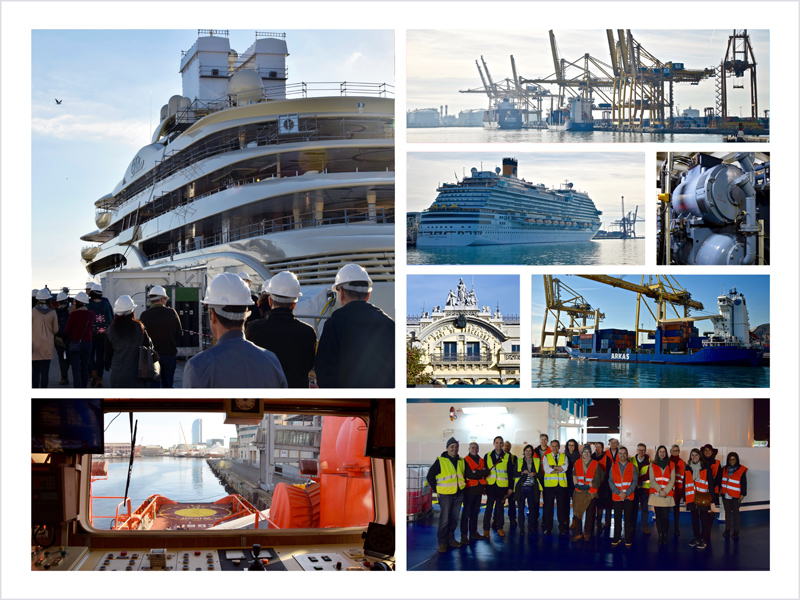As the global regulatory body for international shipping, IMO has developed and adopted more than 50 international conventions and protocols, supported by more than 1,000 codes and recommendations. For these instruments to be properly understood and implemented globally, the Organization’s Member States rely on swift and accurate translation of the great volume of technical documents, particularly in IMO’s three working languages – English, French and Spanish.
With this in mind, IMO translators and maritime safety division staff have been given first-hand experience of facilities and vessels at the Port of Barcelona, Spain (12-14 December).The training visit included a tour of a refit shipyard for superyachts and presentations on the roles of the local maritime authority and national Spanish Maritime Safety Agency. Participants also gained valuable insight into gas-fuelled engines – with an in-depth tour of the passenger ferry Abel Matutes, the first vessel in the Mediterranean to include a [30-m3] liquefied natural gas (LNG) engine for use in port.
Indeed, the safety of gas-fuelled ships is firmly on the agenda for 2017 – with IMO’s new mandatory IGF code set to enter into force in January. The code aims to minimize the risk to ships, their crews and the environment, given the nature of the fuels involved.
